INDUCTED AS INAUGURAL MEMBERS IN 1994
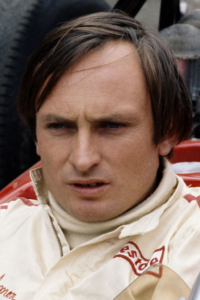
The late Chris Amon
Widely regarded as New Zealand’s most talented driver, Chris Amon’s ability led him to Europe and Formula One at just 19 years old. Although he managed to stay at the top of his field for 14 years – he was number one for the Ferrari F1 team from 1967 to 1969 – victory eluded him. However, wins did come in events like the Le Mans and Daytona 24-hour races and the New Zealand Grand Prix. Now back in New Zealand Chris Amon has strong links with Toyota developing road cars.
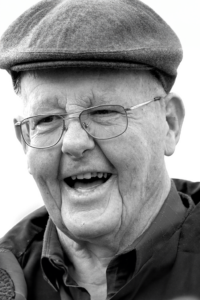
The late George Begg
An engineer by trade, George Begg started to engineer and build cars in 1964. After a stint at the McLaren factory in Great Britain, he came home and built the single seater McBegg. Between 1969 and 1973 he teamed up with Fred McLean to build the FM series of V8-engined Formula A cars. A change in tax laws ended George Begg’s construction days but not before he had played his part in an important and exciting time in New Zealand’s motor sport history.
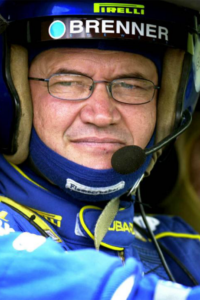
The late Peter “Possum” Bourne
From the time when he finished third in his first rally, Possum Bourne was destined to become one of New Zealand’s top rally drivers and one of the countries leading personalities. After starting in V8 powered Mk 1 Fords, his professional career took off when he linked up with Subaru. Although devastated by the death of his long time co-driver, friend and business partner Rodger Freeth in the 1993’s Rally of Australia, Possum Bourne continued driving and with expatriate Tony Sircombe won the Asia/Pacific title dedicating it to his friend’s memory. Sadly Possum died as the result of injuries received in a car accident at Cardrona in 2003. His funeral brought the nation and the motorsport world together in their grief over arguably one of New Zealand’s most admired sporting ambassadors.
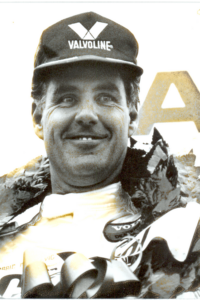
Robert Francevic
Always outspoken, Robbie Francevic was able to back up his words with success on the track. He became a household name in 1966 when he and his team designed and built the famous “Colour Me Gone” Custaxie in which he won twenty races and the 1967 Saloon Car Championship. In his time Robbie Francevic also won the 1985 inaugural Wellington Street race and the Australian Touring Car Championship in 1985 and 1986. Robbie still has an occasional outing in events like the Dunlop Targa.
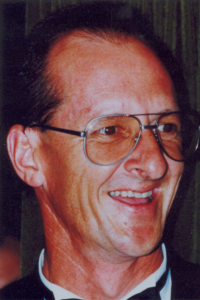
The late Dr Rodger Freeth PHD, MNZEI, MNZIP
From a doctorate of Philosophy in Physics to winner of the inaugural New Zealand Motorsport’s Personality of the Year award, Rodger Freeth had a glittering academic and motorsport career. Although his first love was motorcycles, he went on to become one of New Zealand’s most respected rally co-drivers, first with Neil Allport and then with Possum Bourne. As a driver he also won TraNZam titles in his Starlet. Rodger lost his life in a tragic accident during the 1993 Rally of Australia.
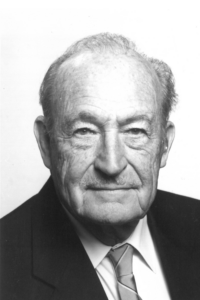
The late Ron Frost
Ron Frost’s 40-year involvement in the administration of motorsport could justifiably win him the title “Mr New Zealand Motorsport”. During the heyday of the Tasman Championships, it was his contacts and negotiation skills that brought many of the world’s top drivers to the Australasian fixture. He was President of the Association of New Zealand Car Clubs (later MotorSport New Zealand Inc) from 1958 to 1977 and took an active part in the international scene through his involvement with the FIA and the World Council of Motorsport.
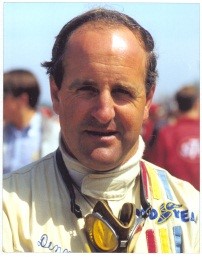
The late Denny Hulme
Another of the illustrious names to have come from the NZIGP Driver to Europe Scholarships, “Denny” Hulme went on to win the 1967 Formula 1 Driver’s World Championship and eight Formula 1 Grand Prix from 1967 to 1974. With fellow Kiwi Bruce McLaren he also dominated the CanAm series from 1968 to 1972. He continued to compete into his 50s in historic and celebrity-style events as well as being in demand for Bathurst where he died of a heart attack doing what he knew and loved best.
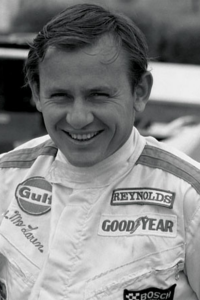
The late Bruce McLaren
After being awarded a scholarship to drive in Europe in 1958, Bruce McLaren quickly established himself as a force to be reckoned with. In 1959 he became the youngest driver to win a Grand Prix when he won his first Formula One Grand Prix in America; it was the start of a career which would see many high profile victories. Bruce McLaren died testing a car in 1970, but his name lives on with the team he created and the work he did developing racing cars.
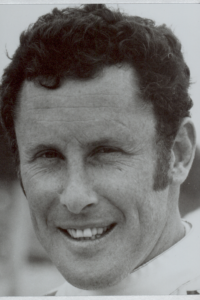
The late Graham McRae
Graham McRae was a successful engineer/driver much in the mould of Bruce McLaren. In 1969 he was awarded the Driver to Europe scholarship and showed a promising start in Formula 2. Often driving cars he had designed, he was a consistent winner of F5000 in Australasia, Great Britain and America. He also won the Australian Grand Prix three times and clinched the Australian Drivers Championship. An extremely talented driver and engineer, he could have reached the pinnacle of motorsport, but chose a different route.
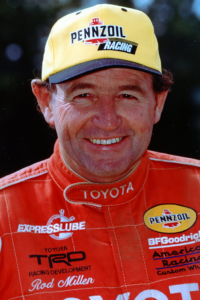
Rod Millen
One of New Zealand’s top rally drivers, Rod Millen achieved success in many parts of the world. After teaming up with Mazda to develop and race the RX3, he quickly established himself as New Zealand’s number one rally driver with three championship wins. In 1978, he moved to America where he continued to win races and where he set up a successful business in special vehicle projects. A frequent visitor to New Zealand, he is still regarded as a kiwi by fans who take pride in his achievements.
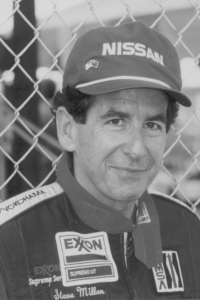
Steve Millen
Steve Millen is one of a breed of drivers New Zealand seems to produce, capable of winning anything with four wheels while at the same time enjoying every minute of their racing. His greatest success at home came in circuit racing when he won the New Zealand International Grand Prix in 1980. Like his brother, Rod, he moved to America where he also set up a successful business and has raced Indy Lights and trucks. He won the Sebring 12-hour and Daytona 24-hour races in 1994.
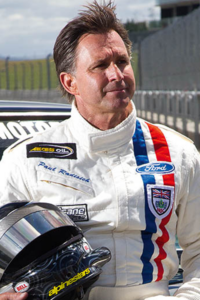
Paul Radisich
Paul Radisich exemplifies the qualities needed to succeed in any endeavour; dedication and perseverance. He competed in Formula Pacific in New Zealand before trying to break into Formula 3 in Britain. When his lucky break failed to come, he turned to American Super Vee racing then the British Touring Car Championship. He went on to win the FIA Touring Car Challenge at Monza in 1993 and moved to Australia to continue with his career in the Australian V8 Supercar Championship.
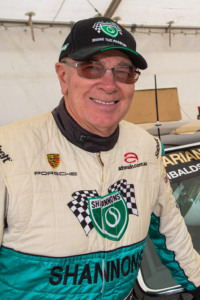
Jim Richards
Throughout his career “Gentleman Jim” Richards earned a reputation as a fair and honest racer, always giving his best but never displaying the win-at-all-costs attitude that some others show. Although he raced in rallies and speedway, his greatest success came in saloon cars. His association with Sidchrome meant a move to Australia in 1975 where he won the Bathurst 1000 five times. Australian journalists gave him his nickname, a fitting tribute to one of New Zealand’s most successful ex-pat racers.
INDUCTED IN 1995
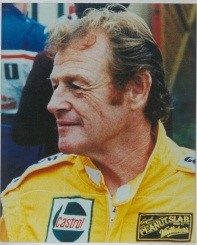
Kenneth Smith
In a career spanning many decades, Ken Smith has achieved success against the best local drivers and against those from overseas who have competed here. In his time he has won the New Zealand International Grand Prix and has picked up five New Zealand Gold Star Championships. Many thought his career was over when he underwent a triple heart bypass in 1987, but within three months he was back on the track and winning races; a perfect example of his talent, determination and courage.
INDUCTED IN 1996
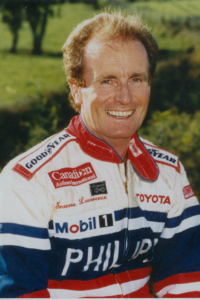
Graeme Lawrence
Since placing fifth in his first race in Levin in 1965, Graeme Lawrence has had a long and distinguished career in motorsport. In 1969 he won the Tasman Cup in the ex Chris Amon’s 2.5 litre Ferrari. A career highlight came in 1975 when he won the New Zealand Gold Star and placed second in the Tasman Championship. Despite serious injuries from a racing accident in a Formula 5000 Lola, he went on to find success largely in Southeast Asia in the seventies and eighties.
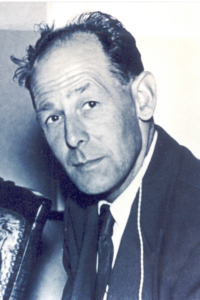
The late Ron Roycroft
A true all-round motorsports person, Ron Roycroft achieved success driving on sand, cinders, gravel and seal and collected over 200 awards in all types of speed events during a long career which started in 1933. He gave New Zealand one of its great motorsport moments in 1957 when he led the country’s own Grand Prix for ten laps before retiring; the next year he placed third. He retired from driving in 1963 but never lost his interest in the sport or his enthusiasm for sharing his knowledge of cars.
INDUCTED IN 1998
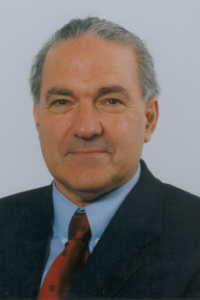
Morris Chandler
As president of MotorSport New Zealand from 1977 to 1998, “Morrie” Chandler’s never diminishing drive and energy led the sport. As founding chairman of Rally New Zealand, he succeeded in getting the country on the map through its inclusion in the World Rally Championships. His contribution to international motorsport came through his involvement with the FIA. One of the sport’s most dedicated promoters, Morrie Chandler was also an accomplished rally driver in a Skoda and later in Mitsubishis.
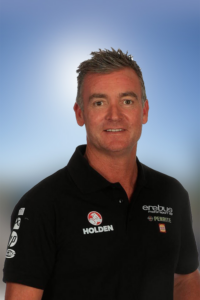
Craig Baird
With a host of New Zealand Motor Racing titles to his credit Craig Baird can rightfully claim to be one of New Zealand’s most successful racing drivers. After making his mark in karts then Formula Ford and Formula Pacific, he made the transition to saloons winning the New Zealand Touring Car Championship four years in a row. After two seasons in the UK Craig set up home in Australia and took up a drive in the successful Australian V8 Supercar Championship. He was awarded a Member of the New Zealand Order of Merit in 2010.
INDUCTED IN 2003
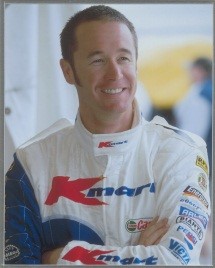
Greg Murphy
An outstanding driver from an early age in karting, Greg Murphy went on to win all the major single seater titles in New Zealand before taking on Australia. Top Formula Brabham and two litre touring car drives in 1994/95 caught the eye of the Australians and slingshotted a successful start to a saloon car driving career that to date has included two Bathurst 1000 and two Sandown 500 titles. Lack of funding hampered efforts to gain an Indy Lights driving contract in 1998 and he turned back to Australia where he has pursued the V8 Supercars title, finishing second in 2003.
INDUCTED IN 2006
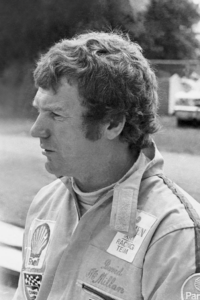
Dave McMillan
Dave McMillan was a dominant single seater driver of the late 1970s – Gold Star champion in 76/77, 78/79 and 79/80 and winner of the New Zealand Grand Prix in 1981. He then headed overseas to the US to pursue his dream of a professional racing career in IndyCars, but his hopes were cut short by a serious injury accident. He has had a very successful career managing teams which have won, among other trophies the Atlantic Championship and the Long Beach Grand Prix. He has never lost his love for and interest in New Zealand motorsport and over the years has helped many young mechanics, and more recently drivers, to gain experience or launch careers in the States.
INDUCTED IN 2009
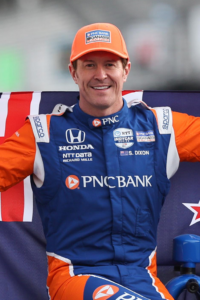
Scott Dixon
When, in 1993 at the age of 13, Scott Dixon was granted a racing licence under a special MotorSport New Zealand dispensation, few predicted what a prolific race winner he would become. With no experience, Scott won the Formula First championship in his first season. In 1997, Scott crossed the Tasman to take third place in the Australian Formula Holden Championship and was named Rookie of the Year, winning the championship the following year. In 1999 Scott earned a test drive in a PACWEST IndyLights car and he was awarded the prestigious Jim Clark Trophy, an award he received again in 2001 and 2004. He switched to the CART series in 2001, taking another Rookie of the Year award. In 2003 he shifted to the Indycar Racing Series winning the championship. In 2008 he claimed his greatest victory to date, winning the famous Indianapolis 500 from pole. It was one of a record-equalling six IndyCar wins for the season and delivered him his second championship. Awarded a Member of the New Zealand Order of Merit in 2009, he continues to be a great ambassador for his country and motorsport.
INDUCTED IN 2012
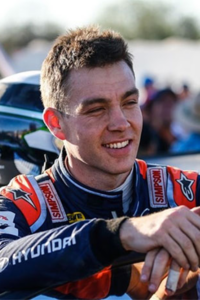
Hayden Paddon
From the small town of Geraldine, Hayden Paddon has taken the world rally scene by storm. Hayden began go-karting at the age of six displaying a natural flair for the track and began turning heads by claiming several regional, national go-karting and rally championships. In 2006, aged 19, Hayden debuted in the New Zealand Rally Championship, winning junior and rookie titles in his Group N Mitsubishi Evo 8. In 2008 & 2009 NZ Rally Championships Hayden becoming the youngest ever New Zealand Rally Champion at the age of just 21 in the process. This led to Hayden’s introduction to the world stage where he continued to grow as a driver and has since cemented himself as New Zealand’s top Rally driver.
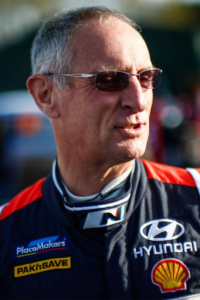
John Kennard
John Kennard began navigating in 1972. He made his World Rally Championship debut in Finland in 1985 by accident, when a regular co-driver became ill and John stepped in to take his place. John returned to New Zealand and co-drove for various drivers, scoring his best WRC result to date on Rally New Zealand in 1988: 3rd overall with the late-Malcolm Stewart in an Audi Quattro. John was approached by Hayden Paddon to co-drive for him in 2005 and they competed together for the first time at the 2006 Rally Otago. Their first win came at Rally Whangarei in 2007. John became New Zealand champion co-driver in 2008 and 2009, guiding Hayden to a Pirelli Star Driver prize win in Australia the same year. That led to joining the Pirelli programme in 2010 and they finished third in the Production World Rally Championship. Last year they returned and won PWRC outright and, in doing so, Hayden and John became the first ever Southern Hemisphere World Rally Champions.
INDUCTED IN 2013
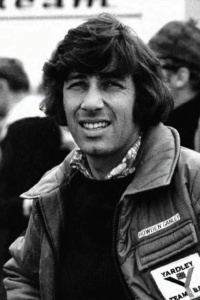
Howden Ganley
After leaving school, Ganley became a reporter for the Waikato Times and wrote a column for Sports Car Illustrated. Armed with a Chevron in 1969 he became the first driver to average better than 100 mph in a F3 car. BRM were impressed enough to sign him up for the 1971 Grand Prix season meaning the young Kiwi became the first and to date, the only person to race in F1 and work as a mechanic in F1. He was a blink away from winning the Italian GP near the end of the year and remained with BRM in 1972 before joining Williams in 1973. His F1 career ended after the suspension failed, leaving him with serious foot and ankle injuries. His Formula 1 career saw him start 35 Grand Prix and score 10 championship points. Howden has also provided tireless service to the prestigious British Racing Drivers’ Club as a Board member and ultimately Vice-President.
INDUCTED IN 2016
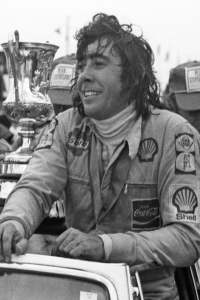
David Oxton
David Oxton had a long and successful open-wheeler career in New Zealand, winning eight championships, including five Gold Star titles. He drove a March Formula 1 car in the 1971 Tasman, which led to his first Gold Star title with George Begg’s FM4. He also won the Formula Ford title in 1971/72 and placed his car on pole position in the Formula Ford World Cup at Brands Hatch. Oxton then had success with various Ralt RT4s in the Formula Pacific category, including winning the New Zealand Grand Prix in 1983. He acted as a mentor for young up-and-coming drivers after retiring from racing.
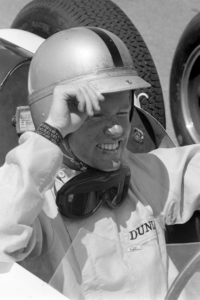
Jim Palmer
Jim Palmer was a successful open-wheeler racer in New Zealand during the 1960s, winning the NZ Gold Star title four times and consistently performing well in the Tasman Series against top Australian drivers. He was also the first resident New Zealander to finish the New Zealand Grand Prix for five years in a row and won the Lady Wigram Trophy race four times. Palmer tested a Ferrari in Italy in 1966, and although he didn’t race it in the 1967 Tasman Series, his performances left no doubt that he had the ability to race in Formula 1. He eventually retired from racing and focused on his car sales business and family.
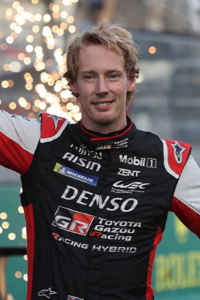
Brendon Hartley
Brendon Hartley, a New Zealand motorsport champion, began his racing career in karts at six years old. He won his first championship at age 12 and made a career move to Europe at 16 to race in a two-litre Formula Renault. He won the World Series by Renault in 2007 and joined the Red Bull talent pool. Brendon was contracted as an official reserve driver for both the Red Bull Racing and Scuderia Toro Rosso teams in 2009 and 2010. He made his F1 debut in 2009 and drove for Mercedes AMG Petronas Formula 1 Team until 2013. In 2014, he secured a Porsche factory contract to drive in the FIA World Endurance Championship, where he became a world champion alongside Porsche teammates Mark Webber and Timo Bernhard in 2015.
INDUCTED IN 2018
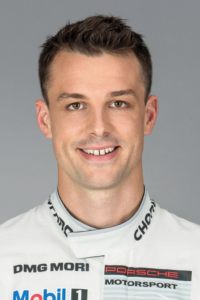
Earl Bamber
Earl Bamber is a New Zealand racing driver who has achieved success both in his home country and internationally. He won the prestigious 24-Hours of Le Mans endurance race twice with Porsche in 2015 and 2017, becoming the first New Zealander to win the race since 1966. Earl started his racing career in karting, winning his first title at the age of 12, and later progressed to single seaters, where he won the Formula BMW Asia title. He also achieved podiums and pole positions in other categories such as Formula Renault V6 and Australian Formula 3. Earl is acknowledged as one of New Zealand’s most versatile drivers, having also competed in A1 Grand Prix and GP2 Asia.
INDUCTED IN 2019
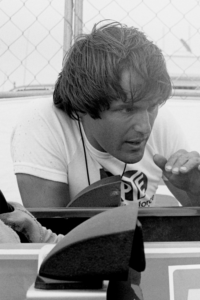
Dick Bennets
Dick Bennetts, hailing from Dunedin, honed his engineering skills with Performance Developments Ltd in Auckland before moving to the UK in 1972 with current NZ Formula Ford Champion David Oxton. He then joined March Racing Formula 2 and later the Fred Opert Team, engineering Keke Rosberg to consecutive NZ Formula Pacific series wins.
Recruited by Ron Dennis, Dick managed the BMW M1 Procar team, guiding Niki Lauda to the Procar championship in 1979. He then led McLaren’s struggling Formula 3 team to win the British F3 championship in 1980. Despite offers to join McLaren’s F1 operation, Dick founded West Surrey Racing (WSR), clinching the 1981 British Formula 3 title and dominating British motor racing. Under Dick’s guidance, the young star, Ayrton Senna won the first nine races of the 1983 season at WSR.
WSR’s success continued when they entered the British Touring Car Championship, winning titles in 2004, 2007, 2008, 2009, 2014, 2016, 2017, and 2018. Though he acknowledges his driver status could have garnered more recognition, Dick’s impact as a technical guru is esteemed internationally, earning him significant respect as a proud Kiwi.
INDUCTED IN 2021
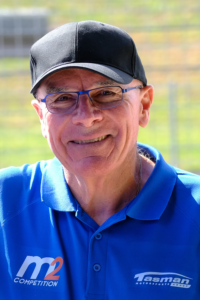
Steve Horne
Steve Horne, a notable figure in New Zealand motorsport, began as a mechanic for Reg Cooke’s F5000 and later worked with David Oxton in Australia. Joining Team VDS in Europe, where he contributed in building a Can-Am car that won the 1981 championship. As team manager at Truesports, Steve oversaw two IndyCar Championship wins and an Indianapolis 500 victory with Bobby Rahal. Under his leadership, Truesports also claimed the 1987 Indy Lights Championship.
After a decade at Truesports, Steve formed Tasman Motorsports Group, nurturing talents like Tony Kanaan and Bryan Herta to Indy Light Championship victories. The team then competed in the top-tier IndyCar Championship from 1995-1998, securing four race wins. Returning to New Zealand, Steve formed Tasman Motorsports Group Ltd for the V8 SuperTourers series. Additionally, he chaired the V8 Supercars commission and supported New Zealand drivers’ careers while advocating for the return of the WRC to New Zealand.
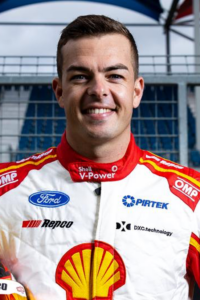
Scott McLaughlin
Scott McLaughlin began his career in karting at age six, quickly advancing to win major titles. After moving to Australia in 2003, his karting success continued. By age 15, McLaughlin was working with a V8 Supercars team, leading to a test drive in 2009. He achieved success in the V8 Supercars Development series, winning the championship in 2012, and also won the V8 SuperTourer series in New Zealand. Joining V8 Supercars in 2013, McLaughlin secured two race wins in his debut season. His move to Team Penske’s Supercars team in 2017 marked a period of dominance, with McLaughlin winning the Bathurst 1000 in 2019 and securing three consecutive Supercars Championships from 2018 to 2020. Transitioning to Penske’s IndyCar program in 2020, he left Australia as one of its most successful drivers. McLaughlin is also known for his contributions off the track, including mentorship and road safety advocacy.
INDUCTED IN 2022
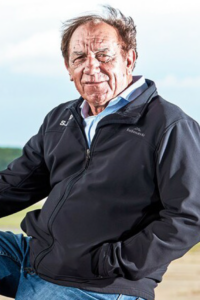
Rob Wilson
Rob Wilson’s influence extends far beyond his accomplishments on the track, shaping the careers of numerous racing talents across different tiers of motorsport. His journey started as a mechanic apprentice in Auckland before transitioning to motorsport journalism. In the early 1970s, he ventured to Great Britain, aiming for a career in motorsport or music. Despite achieving success in music with Edison Lighthouse’s hit single “Love Grows,” his passion for racing led him into the British Formula Ford and later Formula 3, facing off against future Formula 1 champions like Nelson Piquet and Alain Prost. Despite offers to drive in Formula 1, financial constraints hindered his progress.
By 1990, Rob excelled in the Barber Saab Pro Series, winning the championship and progressing to Indy Lights in 1991. His racing career extended to NASCAR, sports car races, and coaching at the Skip Barber Racing School, where he discovered his talent for driver coaching. Rob’s coaching prowess attracted a vast array of clients, including Formula 1 drivers like Valtteri Bottas and Nico Rosberg, as well as New Zealand talents such as Greg Murphy and Shane van Gisbergen. His deep understanding of driving mechanics and telemetry analysis made him indispensable to racing teams worldwide.
INDUCTED IN 2023
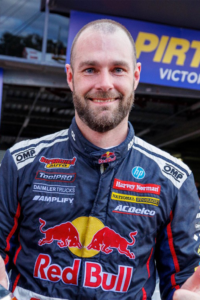
Shane van Gisbergen
Shane van Gisbergen is a celebrated motorsports racer known for his diverse and successful career. Starting his racing journey at five with quad bikes and progressing through karting and various racing classes, Shane quickly made a name for himself. Winning titles in the NZ Formula Ford Championship and finishing runner-up in the Toyota Racing Series, he transitioned to the Supercars Championship at 17. Shane’s talent shone through, with a breakthrough maiden Supercars race win in 2011. Moving to Tekno Autosport in 2013, he achieved significant victories and ventured into GT racing, showcasing his versatility across global circuits. Joining Triple Eight Race Engineering in 2016, Shane won the Supercars title and continued to dominate with two Bathurst 1000 victories and three championships, setting a record with 21 wins in 2022. Beyond Supercars, his remarkable win at the New Zealand Grand Prix and success in rallying, including a third-place finish in the WRC2 class of the World Rally Championship, underscore his exceptional talent.


